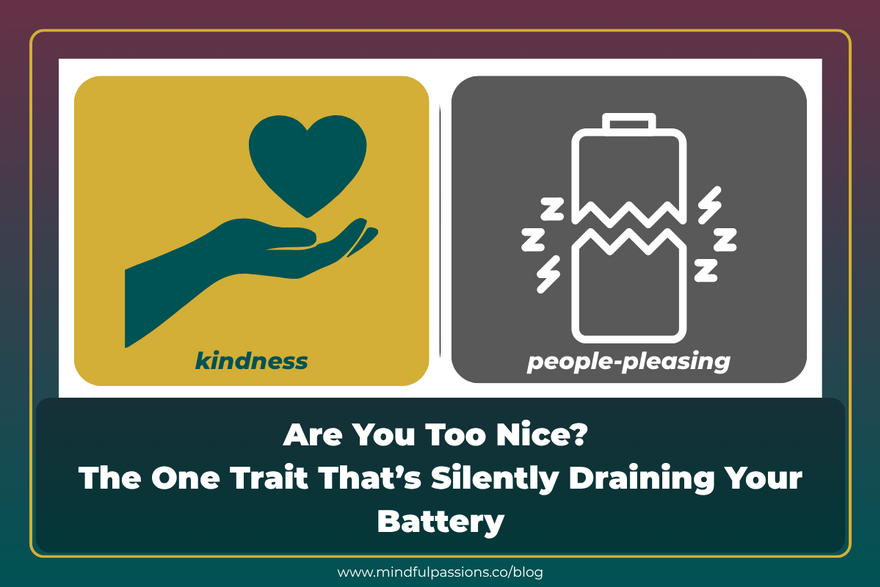
They call you “reliable,” “helpful,” “the sweetest.” The compliments feel good—but secretly, you’re running on empty.
Being nice isn’t the issue. The real problem is the invisible cost of saying “yes” automatically, even when you don’t have the capacity.
👉🏾 Looking for the bigger picture? Check the Boundary OS Hub to see how this post fits into the full system.
The Nice Tax
Every unexamined “yes” you give comes with a hidden price: the Nice Tax.
This tax drains three personal resources:
- Your energy
- Your attention
- Your mood
It’s not that you’re failing because you work too hard. You’re failing because of the Reflexive Yes—the automatic switch that drains your battery before you’ve even made a conscious choice.
Kindness vs. People-Pleasing
It’s easy to confuse kindness with people-pleasing. But they’re not the same.
- Kindness: a deliberate choice, offered from a full tank.
- People-pleasing: a reflex born of fear—fear of conflict, rejection, or letting someone down—no matter how empty you feel inside.
That reflex builds up Boundary Debt: the ongoing cost of giving away what you didn’t have to spare. Over time, that debt is what leaves you exhausted and resentful.
The Reflexive Yes Habit
Here’s how it works:
- A request comes in.
- Your brain skips the internal “capacity check.”
- You default to “yes” instantly.
- Your resources drain before you even notice.
It happens in milliseconds. And each time, the hidden debt gets heavier.
The Solution: Structure, Not Harshness
The common advice—“just say no,” “be tougher”—misses the point.
You don’t need less niceness. You need more structure.
By replacing the Reflexive Yes with a Capacity-First Decision Reflex (CFDR), you can protect your resources while still being genuinely kind.
Start Here: The One-Breath Pause
The simplest tool is also the most powerful:
➡️ Take one slow breath before you answer any request.
This tiny pause interrupts the Reflexive Yes. It gives you space to choose kindness intentionally, instead of draining yourself by default.
The Bigger Picture
Your kindness isn’t the problem — it’s the constant giving without pause that quietly drains your charge.
The One-Breath Pause helps you slow down before you say yes, but what about all the invisible energy you’ve already spent?
That’s where the Resentimeter comes in. In The Hidden Cost of Being the “Go-To” Person (Why Resentment Is Your Canary in the Coal Mine), you’ll learn how to spot those subtle signs of depletion before burnout ever hits.

Comments